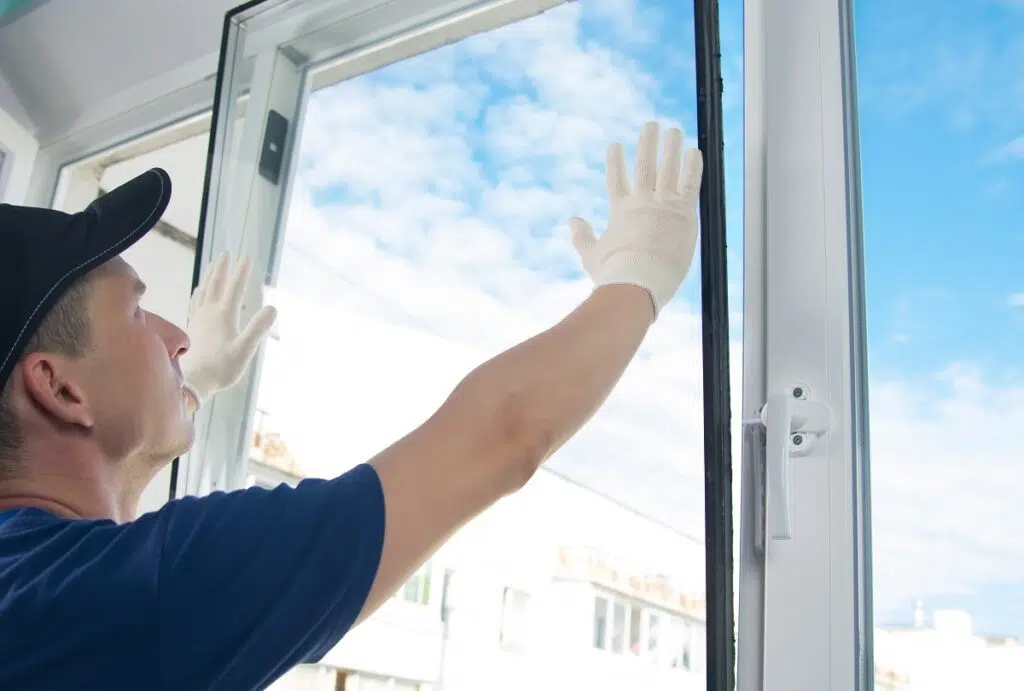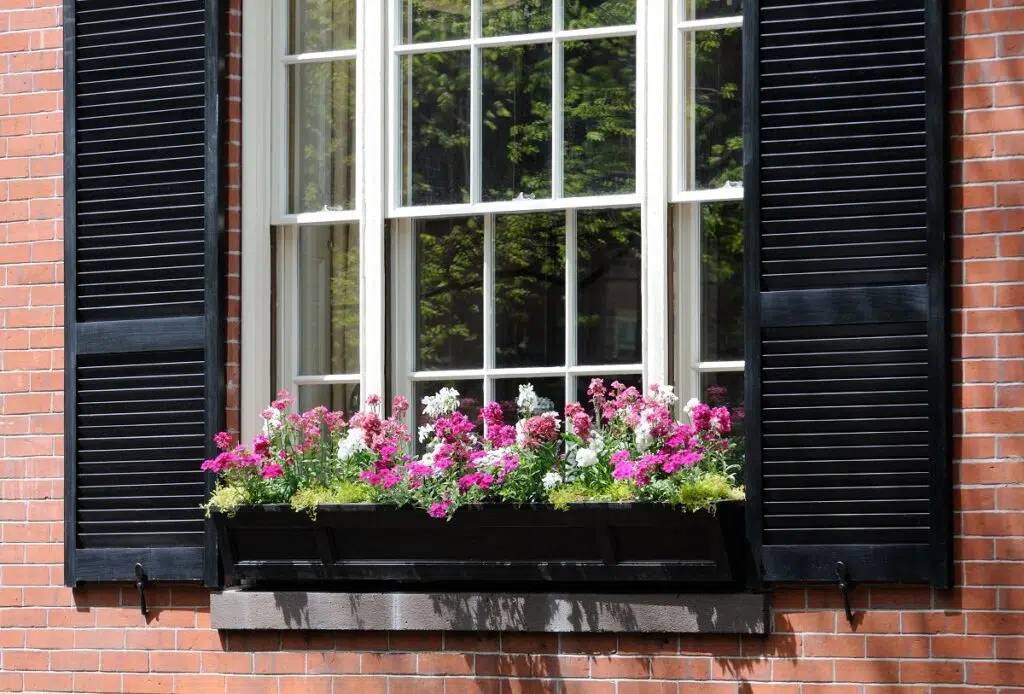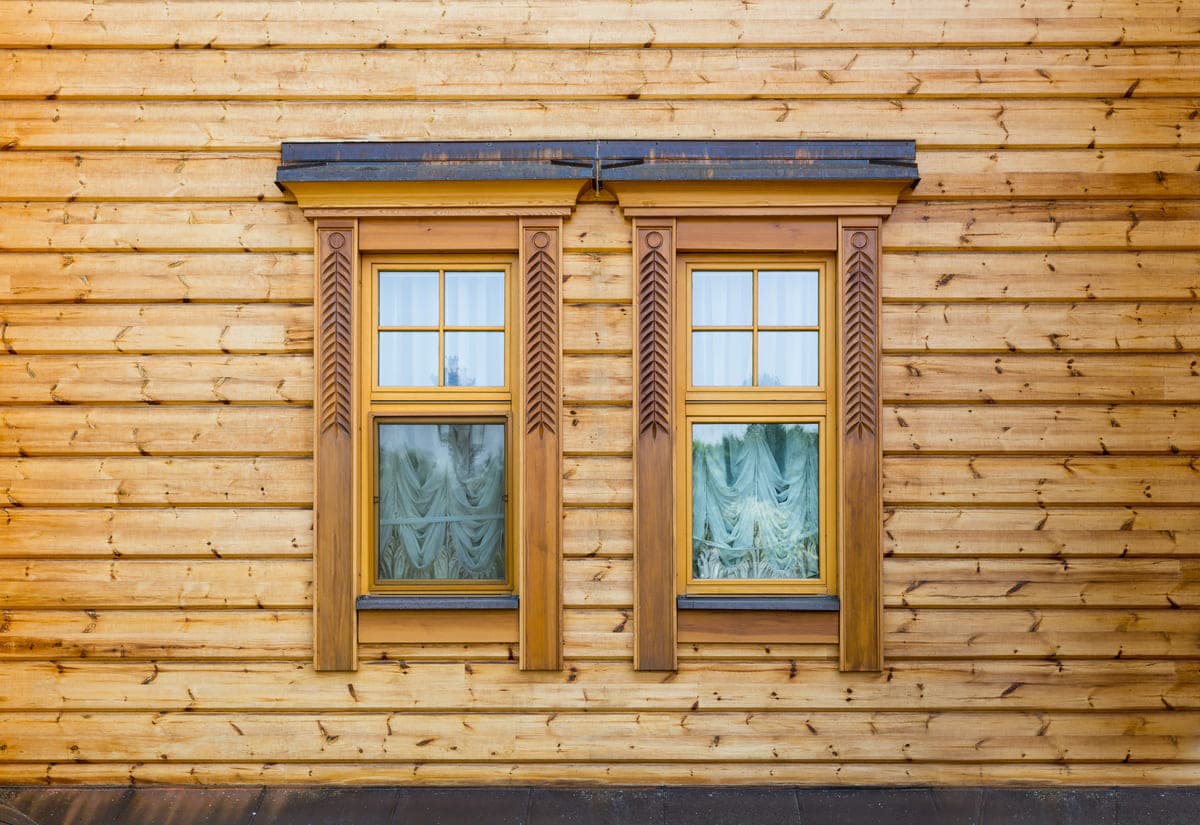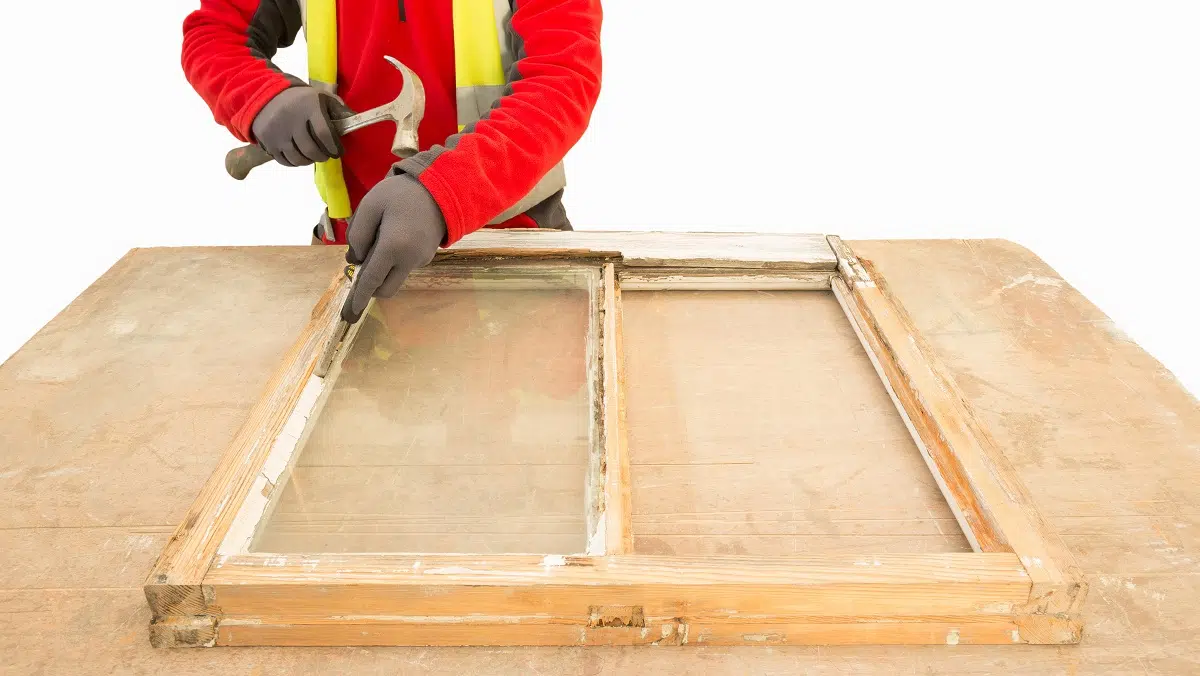If you’re in the market for new windows, it’s no secret that these days it can often feel like a choice between single pane or double pane. However, with so many different options and varying costs associated with each, how do you know which one will be best for your home?
In this post, you will learn all you need to know about single and double glazed windows, plus whether or not they’re a good investment.
What Is a Single Glazed Window?
A single glazed window is a window made up of a pane of glass supported by wood, metal, plastic or vinyl frame and filled with air. The glass can be either flat or curved and it protects the interior of the house from the weather and outside noise.
They are the most common type of window used in houses as they are inexpensive to manufacture and install.
It has been replaced by double glazing as a solution to increasing energy efficiency and environmentally friendly living. But, there are many situations where single glazing can still be preferable over double glazing.
What Are The Advantages of Single Glazed Windows?
Do not always require newer frames
The glass panes can be installed in the old window frames retaining them. However, it depends on how worn out the windows are before installing the new one.
Cost efficient
Single glazing uses less material compared to double or triple glazing systems. It is also more affordable in terms of the price point. In case of emergencies, it does not require any major repair because it is easier to replace a broken single pane than a set of windows which cost significantly more.
Easy to clean
SIngle glazed window will not need much cleaning as it is strong and smooth. They need no additional treatments. This makes the maintenance cost very low. It also allows you to save money in hiring an expert for repair work on your windows.
Suitable for hot and tropical climates
Single glazing is the perfect choice for you if you are staying in a tropical or hot climate. In the single pane glazing, only one sheet of glass is used, and this results in a lesser heat retention. This is where single pane windows perform better than double pane windows.
What Are The Disadvantages Of Single Glazed Windows?
Lack of insulation
They don’t provide the same level of insulation as double glazed. This can result in your energy bills being higher than they would otherwise be, and it can also increase your chances of heat loss. They won’t keep the outside cold air out when the weather is icy, making them an impractical choice for homes that get very cold in winter.
Minimal noise resistance
You’re likely to hear more noise coming from outside since single glazed windows let in a lot of sound. Noise can be bad for people who work from home or need to concentrate, and it can also prevent them from sleeping well at night.
Not sturdy and prone to security issues
Single glazing is not as sturdy as double glazed windows and will not last as long. The glass is dangerous if it breaks. It’s insecure and creates an easy target for intruders to get in easily.
What Is a Double Glazed Window?
A double glazed window is a window assembly with two panes of glass separated by an air space. Double glazing can provide significant energy savings in colder climates.
Double glazed windows have traditionally been used as high-end products, but there are more affordable options available today.
What Are the Advantages of Double Glazed Windows?
Better insulation
Double glazed windows are a more efficient form of insulation than single glazed, providing you with better insulation in order to keep out the cold and keep control over any property.
Greater energy efficiency
Double glazing is synonymous with energy efficiency. Superior insulation and increased resistance to condensation make double glazed windows a more cost effective option.
A single pane glass window will let the heat energy pass through it, so you lose a lot of heat which could be kept warm in your home. But in a double glazing unit, there is a layer of air between two glasses, which will keep the heat inside making it more energy efficient.
Prevent condensation
In the coldest weather, double glazing prevents condensation. When warm air meets a cold surface in your home, water is formed. This misting effect is the result of damp warm air coming into contact with a cold windowpane which can leak indoors and cause damage to walls and furnishings. Double glazing prevents this by placing a gas barrier between the two panes of glass – preventing any contact between the warm and cold air.
Noise reduction
Double glazing reduces noise better than single glazing. This is because it is made up of two sheets of glass with a spacer in between that keeps the air distance equal on both sides (the same effect as insulating your home). Another reason is also that they are generally much thicker than single-glazed windows.
Prevent mould
Mould forms when there is moisture in the air without a sufficient supply of fresh air. Double glazing can help prevent mould from forming.
But how could two little sheets of glass stop mould from forming? Two layers of glass create a thermally and air-tight seal that prevents cold, dry air outside from getting through. This means that the same amount of moisture – which encourages mould growth – stays inside your home.
Increased security
The advantage of double glazing is that if there is an attempted break-in to your home, the intruder will have to smash several sheets of glass before they get in. This would give you plenty of time to respond.
As a matter of fact, the use of double glazing on your doors can increase your security by up to 5 times than other types of windows – but you should still take care to protect yourself against other potential dangers.
Aesthetic appeal
Double glazed windows have the added benefit of being aesthetically pleasing. The sleek design of double-glazed windows contributes to the aesthetics and overall beauty of any home or building. Double glazing is an ideal choice for architecture that requires style, quality and impact.
Protects furnishings
Sun damage can cause your prized paintings, furniture, and other objects you love to fade. Double glazing prevents the sun’s UV rays from damaging your valuables with its built-in protective tint.
What Are the Disadvantages of Double Glazed Windows?
Cost
Double glazing is generally more expensive than single glazing because of the high initial price and the extra work needed to maintain the sealed window unit.
Difficult to repair
Double glazed windows are difficult to repair simply because the manufacturers do not provide access to the window panes. The window panes are sealed within a secondary unit, without any ability for examining or performing repairs on the individual window pane. This means that if a glass pane breaks it requires an entirely new secondary double glazing unit, replacing all the individual components within.
Trap heat
Getting your home’s windows replaced with double glazing sounds like a good idea. After all, the benefits are obvious: more energy efficient, quieter for next door, and less cold in the winter. But there are some downsides to this that you might not have considered. Heat will be trapped inside of your house or apartment even when you don’t want it to be trapped inside. This causes horrible hot summers and stuffy rooms that make you physically uncomfortable.
Conclusion
The issue with choosing between single and double glazing comes from the fact that both methods are effective in different ways. What you should consider is the level of performance you get.
A double pane window will give twice the insulation as a single pane, but it is twice as expensive too, so you have to decide if it’s worth it. But if you want to cut down on your energy bills and keep your home warmer, then you really need double glazing.







